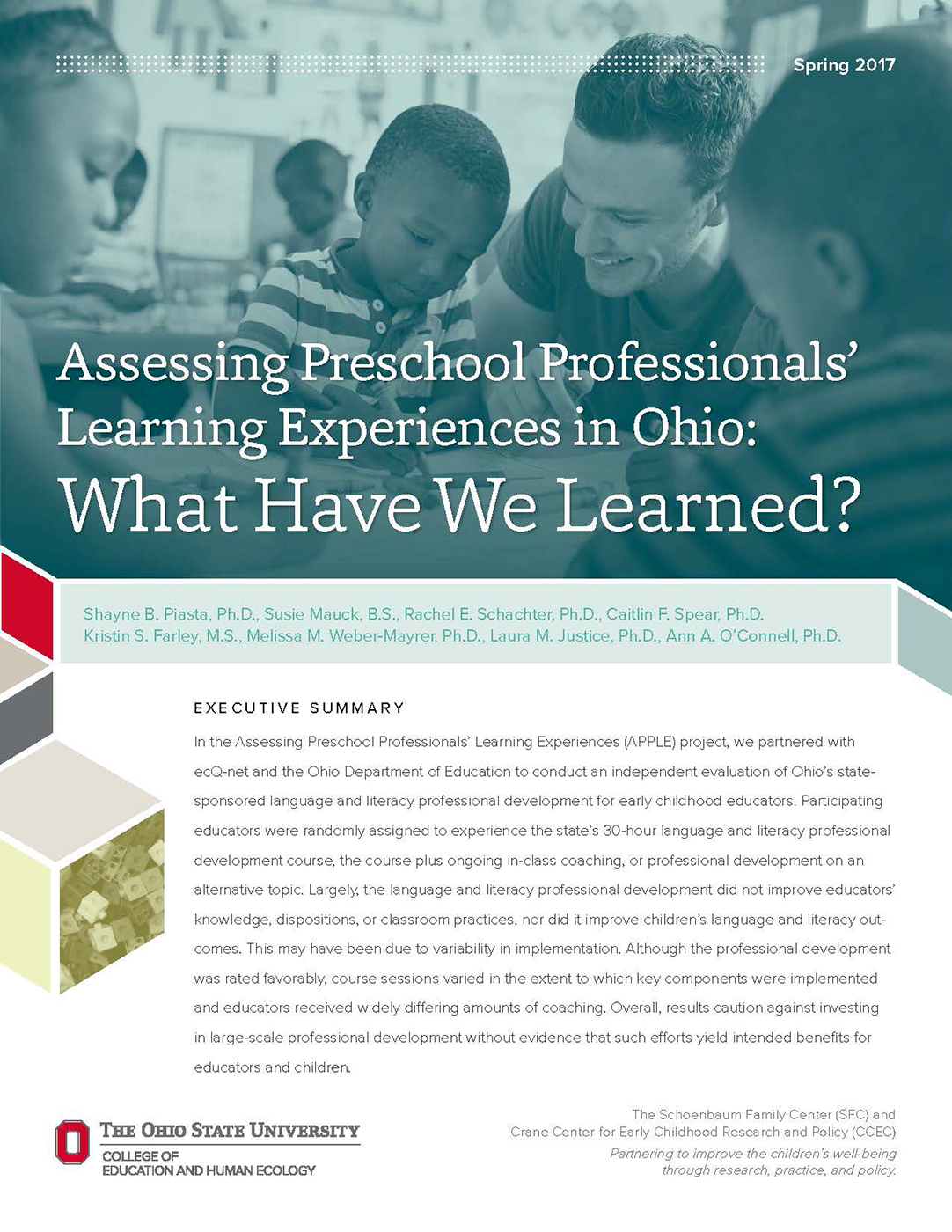ABOUT APPLE: OHIO
Professional development allows early childhood educators to advance their knowledge, skills, and classroom practices to ultimately improve outcomes for children. Because of this, across the state, professional development is included in requirements for licensing and program evaluations.
With so much emphasis on professional development and state funds investing in providing opportunities to early childhood providers, understanding the return on the investment and overall effectiveness is important. In 2017, Crane researchers Dr. Shayne Piasta and Dr. Laura Justice received funding from the U.S. Department of Education’s Institute of Education Sciences to evaluate the state’s sponsored language and literacy professional development. The project was called Assessing Preschool Professionals’ Learning Experiences (APPLE: Ohio). Crane researchers examined not only educator knowledge, classroom dispositions, and classroom practices, but they also examined the children’s language and literacy outcomes.
PUBLISHED RESEARCH
This project resulted in multiple published papers. To learn more details about APPLE: Ohio’s research, check out two of the peer-reviewed articles.
ADDITIONAL RESEARCH
SEE THIS PROJECT’S WHITE PAPER
Principal investigator Dr. Shayne Piasta co-authored a white paper on the findings of the APPLE: Ohio research project in order to showcase the findings and share recommendations for researchers, policy makers, and practitioners.
ABOUT THE EVALUATION
In Assessing Preschool Professionals’ Learning Experiences (APPLE: Ohio), Crane researchers partnered with ecQ-net and the Ohio Department of Education to conduct an independent evaluation of Ohio’s state-sponsored language and literacy professional development for early childhood educators. Participating educators were randomly assigned to experience the state’s 30-hour language and literacy professional development course, the course plus ongoing in-class coaching, or professional development on an alternative topic.
FINDINGS
Largely, the language and literacy professional development did not improve educators’ knowledge, dispositions, or classroom practices, nor did it improve children’s language and literacy out- comes. This may have been due to variability in implementation. Although the professional development was rated favorably, course sessions varied in the extent to which key components were implemented and educators received widely differing amounts of coaching. Overall, results caution against investing in large-scale professional development without evidence that such efforts yield intended benefits for educators and children.



